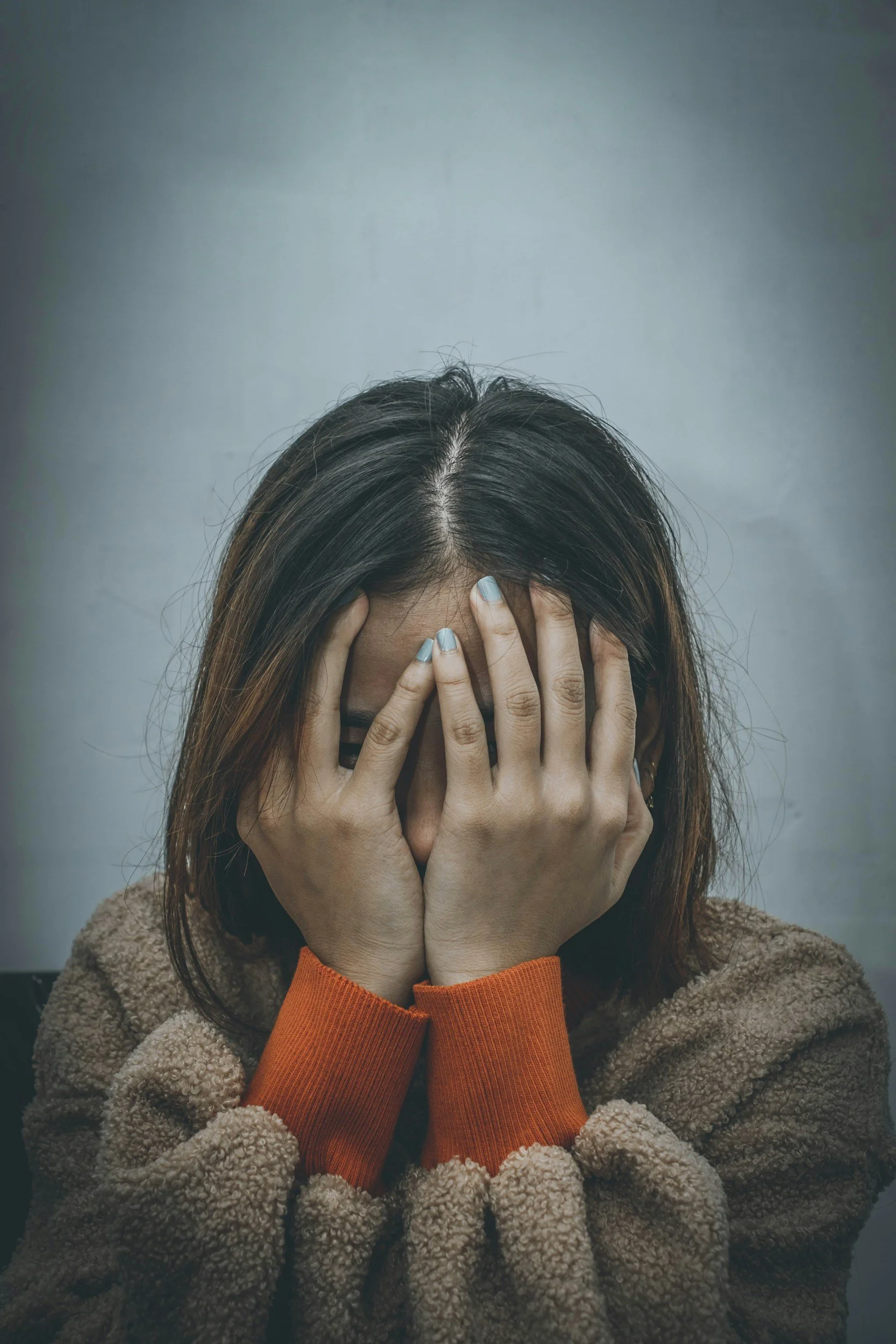Taboo OCD Themes: working with shame and steps to Healing
Written by Allyson Inez Ford, MA, LPCC
OCD 101
If you’ve been following our work for a little while now, you likely know that OCD is not about a love of hand washing and organizing. OCD is a mental health disorder ruled by intrusive thoughts that the person does not like, and compulsions (rituals) that temporarily reduce the anxiety or disgust the intrusive thoughts bring. This only works very short term, which is why you might find yourself (or your loved one) doing the rituals over and over. It’s actually FUELING the fear, not preventing it. Which is why in OCD therapy, we work on breaking that cycle so that the brain gets a chance to learn that just because your thoughts feel scary or anxiety producing- they actually won’t hurt you and they certainly are not facts. OCD is very serious, in fact, it is considered one of the top ten most debilitating health conditions of all times- both physical and mental, according to the World Health Organization.
Taboo Themes of OCD
Okay, now that we’ve cleared up what OCD is, let’s talk about the taboo themes of OCD that even clinicians shy away from discussing. OCD has many subtypes- some are about perfectionism, some are about moral/religious scrupulosity, some struggle with somatic obsession and others are about contamination. Then, there is the whole sub-category of “taboo” themes like the fear of being a murderer, fear of being attracted to your pet, fear of killing yourself—and probably the most shame filled one of all—fear of being a pedophile. Yep, you heard that right, OCD can actually make you doubt whether or not you are attracted and would act on such attraction- towards children. What’s interesting to know is that while so few people openly talk about suffering with this theme, it is one of the most common themes people struggle with. Perhaps, because the shame is so intense, it keeps people from speaking about it even to their therapist.
So what exactly is Pedophilia OCD (POCD)?
POCD is the fear and obsessional doubt that you might be a pedophile. It starts as an intrusive thought, usually something like “What if I am attracted to that child, oh no, what if I am a pedophile?” Or, “I watched a documentary about someone who was sexually abused, and now I can’t stop wondering if I am someone who would hurt kids that way.” Most people get intrusive thoughts like these from time to time, but are able to brush them off and not take them as fact. They might response to the thought like “well that was a strange thought” and then continue on with their day. For someone with OCD, this thought becomes sticky, it won’t leave. It won’t just pass on by like the other thoughts. And it might start spiraling in a million different directions trying to convince you that this is something you should really worry about, despite never having any desire or history of sexual attraction towards children. Now every time you see a “cute” kid at the beach, OCD is right there- see, you’re attracted, why are you even looking at that child?” You might feel cautious anytime you look at erotic material, fearful that you are actually looking at someone underage. You might avoid parks, schools, and even your own nieces or nephews- or your own children! Quickly, your mind becomes a dark place and you avoid anything that could trigger the thought (this is a compulsion). Because of the taboo nature of the thoughts, you keep them inside, in fear of what others would think of you, in fear of someone reporting you even.
OCD Attacks Our Values
The thing is- OCD is a liar. OCD attaches onto things we value most and creates fear/doubt, that is why it feels SO bad. So maybe you are someone who has always enjoyed being around kids, their curious minds, innocent souls, creative-untouched by the world-nature. Maybe you long for a child, maybe you feel like you are born to be a parent or born to work with kids in some way- like a teacher. This would indicate you value kids very much, and if you have the genetics for OCD, you might be vulnerable to these sort of intrusive thoughts. A true pedophile enjoys thinking about being aroused by children. They aren’t anxious or disturbed by the thoughts, they seek them out. Just like the fear of being a serial killer, a true murderer doesn’t fear being one, they actually just enjoy hurting others and get off on the feeling of power. So the fact that you are so distressed, is actually a sign that this is totally opposite to what you value. And as an OCD therapist and survivor myself, I can tell you that 99% of the time someone comes in with this theme, they usually actually have a deep empathy for children- they are teachers, daycare providers, mothers, aunts. Sometimes, people with this theme have experiences sexual trauma in their past and are fearful of becoming like the person who hurt them the most. Under this lens, OCD might think it is protecting you by making you avoid any and all ways you could become like your abuser. Take a deep breath, I know this is heavy. I know it’s hard to even think about all of this. I know you’d rather avoid and shove it down. But the more you do that, the louder OCD gets and the deeper your shame gets.
Intrusive Thoughts are not facts
We have nearly 70,000 thoughts a day- imagine if they were all true? That would be impossible. Just like feelings, thoughts are not facts. They are just thoughts. In fact, in cognitive behavioral therapy, the term cognitive distortion is used to describe thought patterns that lead to suffering, and this is one of them. In therapy, you can learn to notice these thought patterns that keep you stuck and not get so caught up in them. Healing actually isn’t about getting rid of the thought, but changing your relationship to the thought. Noticing them, without getting so fused. Giving yourself compassion for having uncomfortable thoughts without going into a shame spiral. OCD thoughts also tend to play on what is called our “feared possible self” and in therapy, we can tease out the obsessional narrative and core fears to help you find more peace and freedom from these intrusive thoughts.
The gronial Response
Now this is something that everyone with OCD needs to know. Your body might start giving you physical sensations of arousal to any kind of sexually explicit material, even when you don’t like it. This can really fuel POCD. And it is deeply uncomfortable when your body reacts in the exact opposite way you’d like it to. However, your body is just being a body, and it doesn’t mean you like the thought or want to act on them. It doesn’t mean you are actually attracted to children. The scientific term for this is arousal non-concordance. This isn’t something that just happens to OCD sufferers, it also happens to sexual assault survivors, and anyone who has a body, really. But for those of us with OCD or those of us who have survived sexual trauma, it is deeply uncomfortable, confusing and can feel shameful (even though you have nothing to be ashamed of and deserve so much compassion). Instead of reacting to this body response with more compulsions, the key is to treat it as insignificant. Notice it, but don’t fixate on it. Don’t give it so much attention and airtime. Similar to how we can be tickled and despite it- we might respond with laughter and appear like we like it, when in reality we want it to stop. It’s the same kind of concept. This is a hard thing to experience, and often takes therapeutic support to feel a sense of relief from it. Many of my clients find that just having the education around arousal non-concordance helps them to detach from any meaning OCD was making out of it- I hope reading this does the same for you.
Common Compulsions POCD sufferers experience
Common compulsions that people with POCD find themselves doing to temporarily relieve the anxiety or disgust their thoughts cause them to feel include: avoiding places with children, avoiding thinking or talking about children, obsessively replaying memories where they interacted with children, googling things about pedophiles in an attempt to reassure themselves they aren’t one, comparing themselves to pedophiles they might hear about on the media, checking physical sensations to see if they actually are aroused (which, we know can happen and doesn’t mean anything)! You also might find yourself avoiding any kind of documentary, article, song, story that has anything about sexual abuse of kids in it. A common compulsion for new parents with OCD is to avoid holding their own baby. As a mom, that one breaks my heart. These are all so common and there are many more.
Healing from POCD Looks Like:
Healing from OCD does involve gradually reducing these compulsions. It can also include exposure to the things you are avoiding- such as gradually working up to walking by a park and noticing the intrusive thoughts without doing any rituals. Healing can also look like working through underlying trauma (not everyone with POCD has sexual trauma, to be clear). Healing may include understanding your obsessional reasoning process, OCD’s tricks and cheats, and learning about your true self narrative. Finally, healing involves tending to the shame that having POCD carries. At ED and OCD Therapy, we take multimodal approach, blending ERP, ACT, I-CBT, trauma work and mindfulness skills to help you find the freedom you are longing for from these thoughts. Our goal is to help you get back into living your life, with less fear, more self trust and leading a values driven life (not a fear based one).
Final thoughts
Taboo OCD themes like POCD are very painful to be caught up in. It’s crucial to have a specialized therapist; sometimes, unintentionally, therapists untrained in OCD can make OCD worse. This is because it takes special training to understand how to work with OCD. It’s incredible brave of you to even consider getting help, and we are here for you when and if you want to move forward with healing from the pain of OCD. Just to add a little comfort- most of our team also has lived experience of OCD and has walked in similar shoes. We are not here to judge you. We get it, and we want to help you. Questions? Feel free to reach out to us and we’d be happy support you in either working with us or finding other resources to support your journey.


